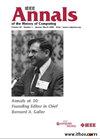文学与人工智能
IF 0.7
3区 哲学
Q4 COMPUTER SCIENCE, THEORY & METHODS
引用次数: 0
摘要
这篇文章提出了一种“文学”的视角来看待人工智能的历史。一方面,这意味着对第二次世界大战以来几十年的文学历史回顾,但它也强调了人工智能的基本概率特征,特别是在当前技术发展的背景下,这一点变得更加明显。文学的空间是一种可能性的视界,它伴随着近代早期人类的现实,并引导着人类的活动。今天,当“智能机器”以数学猜想的方式转向它们的环境时,这不仅标志着认识论上的停顿,而且标志着人类学上的停顿。本文章由计算机程序翻译,如有差异,请以英文原文为准。
Literature and Artificial Intelligence
The essay proposes a “literary” perspective on the history of artificial intelligence. On the one hand, this means a literary-historical retrospective of the decades since the Second World War, but it also emphasizes the basic probabilistic trait of artificial intelligence, which becomes recognizable especially against the background of current technological developments. The space of literature is the horizon of possibility that accompanies what is real for man in early modern times and to which his activity is directed. When “intelligent machines” today turn to their environment in the mode of mathematical conjecture, this marks not only an epistemic, but also an anthropological caesura.
求助全文
通过发布文献求助,成功后即可免费获取论文全文。
去求助
来源期刊

IEEE Annals of the History of Computing
工程技术-计算机:理论方法
CiteScore
0.80
自引率
28.60%
发文量
88
审稿时长
>12 weeks
期刊介绍:
The IEEE Annals of the History of Computing serves as a record of vital contributions which recount, preserve, and analyze the history of computing and the impact of computing on society. Where possible, first hand accounts of events and activities are recorded with minimal editorial change, and scholarly reports of analyses of the historical record from archives and personal contact are published so as to better understand both the past and the future of our field.
 求助内容:
求助内容: 应助结果提醒方式:
应助结果提醒方式:


